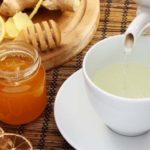Milk is a nutritious beverage that provides many vitamins and minerals necessary for the body. In particular, milk is rich in calcium, which is good for bones and teeth.
You can drink milk in the morning to get extra energy and start a new day full of vitality. Additionally, drinking milk in the evening is also a good choice as it helps promote better sleep.
Although milk provides many health benefits, not everyone is suitable to consume this type of beverage.
Here are some groups of people who should not drink milk.
– Lactose intolerant individuals
A 2015 study estimated that about 75% of the world’s population experiences some level of lactose intolerance. The lactose content in cow’s milk is relatively high. Therefore, people who are lactose intolerant may experience additional digestive burden when consuming milk. In this case, milk drinkers may experience symptoms such as abdominal pain, diarrhea, headaches, rashes, acne, sinus congestion…

– Individuals with milk allergies
There are many people who have milk allergies. Common allergic reactions include rashes, itching, diarrhea… In more severe cases, milk allergies can be life-threatening. Each individual’s condition is different, so if you experience milk allergies, it is not necessary to force yourself to consume milk. There are many other food alternatives that can provide rich sources of nutrients.
– Individuals with gastroesophageal reflux
The fat content in milk can affect the constriction of the esophageal sphincter and lead to gastroesophageal reflux, reflux of the stomach after drinking milk. Therefore, individuals with gastroesophageal reflux, reflux of the stomach should limit their milk consumption to reduce discomfort symptoms.
– Individuals with gastric ulcers
Drinking milk on an empty stomach can stimulate the gastric mucosa to release a large amount of gastric acid, causing irritation and damage to existing ulcers. Therefore, individuals with gastric ulcers should not drink milk on an empty stomach to prevent the condition from becoming more serious.

– Individuals with iron deficiency anemia
Milk is a food with high nutritional value but is not suitable for individuals with iron deficiency anemia. The reason is that milk contains a lot of calcium, and this substance, when entering the body, will combine with iron ions, increasing the body’s iron resistance and making anemia symptoms more severe.
– Individuals with gallbladder inflammation
Individuals with gallbladder inflammation should not drink milk during the treatment period. When drinking milk, the body needs to produce more bile to digest it. However, the inflamed gallbladder’s ability to produce bile is affected. Consuming milk can put extra burden on the gallbladder, affecting the recovery process.
– Individuals with kidney stones
Milk contains a lot of calcium. Supplementing calcium is good for bones and teeth. However, for individuals with kidney stones, consuming foods with high calcium content can increase the risk of stone formation, making the condition more serious.





































